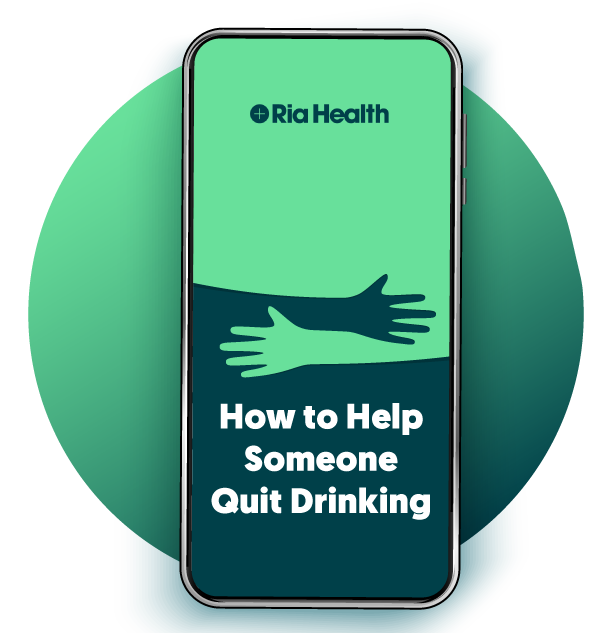Should You Argue With a Drunk Person?
Every now and then, you might find yourself in a heated argument with someone who’s had a little too much to drink. This can be quite distressing—especially if it happens often.
When it comes to drunk arguments with friends or loved ones, it can feel like you can’t get through to them, no matter what you say. This is because alcohol hinders a person’s ability to understand and communicate effectively.
Whether you’re dealing with relatives, friends, or acquaintances who habitually argue while drunk, this post will offer some insight on the best ways to handle it, and look out for your own well-being.
How to Diffuse an Argument With Someone Who’s Been Drinking

Here’s a piece of advice you may have heard: Never argue with a drunk.
No matter how triggered you may feel, or how important the issue at hand may seem, you cannot reason with someone who is intoxicated beyond the point of understanding.
If you find yourself arguing with a drunk person, do your best not to engage with them until they’ve sobered up. They may attempt to bring you into an argument by criticizing you or making insults. If you have to respond, use language that is polite, but firm, and shuts down the conversation for the time being.
Remember not to take anything they say personally—and don’t get caught up trying to explain or defend yourself.
If You Can’t Avoid Engaging in a Conversation, What Should You Do?
Here are some tips for overcoming drunk arguments with friends or loved ones:
- Say, “I’ll keep what you’re saying in mind, and we’ll talk tomorrow.”
- Agree to disagree until later on—but don’t leave the discussion open-ended.
- Keep your composure.
- If necessary, physically remove yourself from the situation until the person is sober.
Why Arguing with a Drunk Person is Often Futile
Alcohol is notorious for negatively impacting many parts of cognition, including memory, attention, problem solving, and impulse control. And for some, particularly those who already struggle to manage their anger, alcohol can also encourage more aggressive behavior.
Because of this, a person who drinks alcohol to excess may take offense more easily, have a harder time holding back, and think less about the consequences of their actions. They may also have a harder time processing what you are saying, and even practice “selective listening” (i.e. not hearing the parts of your argument that don’t line up with their current thinking).
Even if you feel very offended by a person’s words while they are intoxicated, it’s important to remember that this person is impaired. They aren’t functioning normally, and it’s therefore best not to take their behavior personally. Instead, save any serious conversation for when they are in a clear state of mind.

Download Our Free Guide
Download our guide on How to Help Someone Quit Drinking. Learn more about alcohol use disorder, communicating with a loved one, and the resources available to help.
What Should You Do If This is a Common Issue?

Over time, it might become apparent that a person in your life has a problem with their alcohol use. And in some cases, especially if they are often an “angry drunk,” it may be time for a serious heart-to-heart.
As mentioned above, it’s important not to stage an intervention—or any other serious discussion—while a person is drunk. It’s common for people to feel defensive or uncomfortable when confronted about substance abuse, or any other similar issue. The effects of alcohol will only make this worse.
However, if someone you care about is often intoxicated, and often argumentative, it may be important to have a talk with them. If this is the case, choose a good time, and have an open, empathic conversation. Use “I” statements instead of “you” statements, and emphasize that you are not judging them, and that you care about their well-being.
The Bottom Line
In any relationship, communication is key. But real communication should take place when everyone is in the right headspace to have a meaningful conversation.
If someone is intoxicated, they will have a harder time understanding where you’re coming from. Reaching a solution with them will be tough. Therefore, if you find yourself arguing with a drunk person, either let it go, or save the conversation for a better time.
More Resources
If you or someone you love is struggling with their alcohol use, there are newer, easier ways to find support.
Ria Health offers access to prescription medication, digital tools, support groups, and weekly coaching to help you reach your goals—whether that means cutting back or quitting completely.
Not only that, but Ria Health is 100 percent accessible from your personal device. You don’t have to go out to a doctor’s office or treatment center to receive support. Reach out to us today, or learn more about how we can help.
References
- Stavro K. et al. Widespread and sustained cognitive deficits in alcoholism: a meta-analysis. Addict Biol. 2013 Mar; 18(2):203-13. Accessed December 22, 2020
- Beck, A. et al. Alcohol-Related Aggression—Social and Neurobiological Factors. Dtsch Arztebl Int. 2013 Oct; 110(42): 711–715. Accessed December 22, 2020
- Live Science. Why Do Drunks Get Belligerent? Accessed December 22, 2020
- Stappenbeck, C. & Fromme, K. The Effects of Alcohol, Emotion Regulation, and Emotional Arousal on the Dating Aggression Intentions of Men and Women. Psychol Addict Behav. 2014 Mar; 28(1): 10–19. Accessed December 22, 2020
Will insurance cover treatment? Verify Coverage
Have Questions? Call (800) 504-5360



